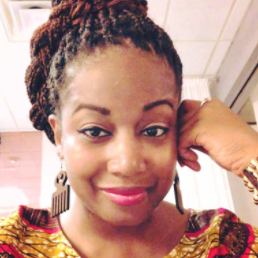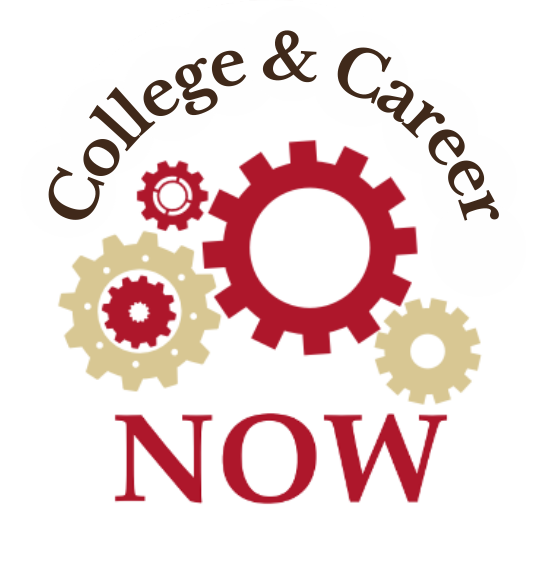
#SDSUSCFellows- Rakiba Mitchell
Interview with Rakiba Mitchell
School Counselor at Southeastern High School & Founder/CEO of HBC&U Legacies
What is the biggest challenge you faced in your own educational journey?
My biggest challenge was in undergrad. There was a teacher who would not allow me to do my lessons which presented some roadblocks. I noticed that my fellow cohort members didn’t have the same issues. As a result, I ended up having to wait a whole semester to take the class over again. I tried to advocate for myself, I tried to talk to the dean and anyone involved in setting up the pre student teaching. I had suspicions that the teacher was racist and a friend who had been in my cohort got hired at the school validated my suspicions. I was disheartened and past outrage, to the point where I just felt done. I also realized that this was not a good fit for me. Because of this, now that I am in this position where I am advising students about postsecondary planning I make sure they really focus on matching and ensuring that the institution and the student are a good fit. It’s important to do research beyond what’s on the computer screen, sometimes that means going in person to ask questions, even uncomfortable ones, so that you understand what your experience may be like.
What is one thing you would tell your younger student self now?
I don’t think I necessarily challenged myself. I think I operated with the idea that if this is too hard I won’t succeed. That is why I changed my mind about being a child psychiatrist. I knew education was something that I did well because I’ve been working in school since I was in high school and I’m a fourth generation educator. My thinking was that I can do this, but in one of my classes I had a professor with a very thick accent and I didn’t understand much of what he was talking about and rather than really trying to understand my thinking changed to I don’t believe I can do this. I then changed my entire focus. So my message to my younger self would be to rise to the occasion, challenge yourself, and don’t be afraid to go after what it is you really want rather than just the interests you had in high school. I think that back then I needed to rise to challenges and that’s why I’m glad to say that now in this phase of life I’m doing things that challenge me like studying at Harvard and recognizing that I’m smart enough to do so. It’s important to also find what you are passionate about. I always tell my students that a passion is something that you love doing that if you weren’t to get paid for you would still pursue it. Though I am not endorsing going without a paycheck!
If you could go back and visit your elementary, middle, and or high school counselor, what would you tell them?
I had a good relationship with my high school counselor but I think because I was one of the “good” students she felt like she didn’t need to engage me. We tend to do that, society tends to do that, educators tend to do that in educational settings. The students who perform well are students we tend to engage a lot less because we have the notion that they’ll be okay because they’re performing and meeting standards. Now I’m always looking out for that student because I was one of those students.
What message of encouragement would you give to first generation students trying to figure out their postsecondary path?
A lot of our students are first generation students, and I don’t think there’s one message. I think there needs to be a consistent message of resilience and empowerment. I also think we need to teach the importance of a support system. They may not recognize that they have a support system and how to tap into those people when they’re exploring postsecondary planning and when they’re starting to apply to schools or work. Those are the people they need to lean on heavily for guidance as to how this works as it can be extremely overwhelming for students that don’t have any guidance on which path they should take.
If you could give one piece of advice to higher ed professionals, what would you want them to know?
I think that there needs to be a lot more conversation on how we support students in their transition from high school to college. We don’t give them an understanding of expectations or what it will look like when/where they land. For example, you may take students from Detroit, a predominantly black city, and a predominately black school who have rarely been out of the city boundaries and they may land in a predominately white space. That’s going to be a major culture shock for a lot of them and they may not be ready to handle that. The question becomes how are we going to transition them into being a part of the community. Students are having a difficult time transitioning and then adding the rigor on top of that and then covid on top of that. With covid, we’re talking about seniors who haven’t seen the inside of a building in over a year so essentially they last functioned in the building as juniors and have operated fully online the entire year. Students need to have a mastery of skills in high school before they can transition to college like time management, soft skills, communication, and with covid I don’t think that they have gotten that.
How do you hope to create a more equitable postsecondary advising system?
I am the founder and CEO of HBCU legacies and we have been providing professional development opportunities for educators for four years now. We go to conferences, high schools, churches, organizations, and whatever setting is necessary to present and talk about historically black colleges and universities. We present exploration, applications, and funding materials so that students know that they exist and how to go about accessing these resources. We engage professionals and advocate that they need to include HBCUs when talking about postsecondary planning because they deserve to be there and have a space in the conversation. Now we are taking it to the next level. We are going to start to host webinars now and allow people to purchase some of our own published resources. We are definitely contributing to the conversation and making sure the HBCS have a seat at the table.
Tell us about your advocacy project
My work with HBCU Legacies will be developed into an advocacy project. We are working to make sure that we’re advocating for HBCUs at every level. Our target audience was mostly high schools, but now we are going to target elementary and middle schools so we can start the conversation earlier.
